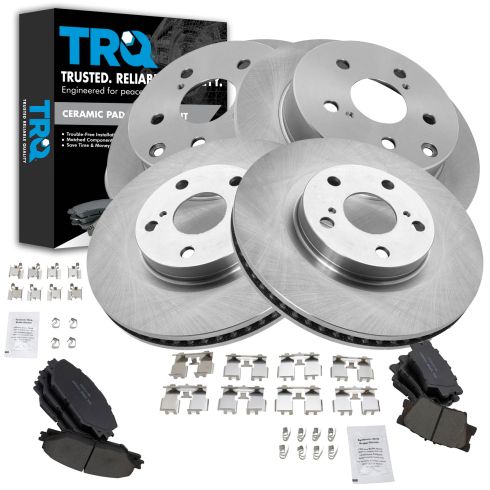The black dust you see on the wheels of some cars is the residue from the pad material and steel rotor that has worn off.
Do ceramic brake pads wear rotors faster.
Metallic brake pads wear faster but cause less rotor wear.
Every brake pad manufacturer says that they re the best and that they re an upgrade from whatever you already have.
Ceramic brake pads wear more slowly but are more abrasive to the rotor.
The wear pattern on a brake pad says a lot about your brake setup.
As far as price goes metallic brake pads tend to fall somewhere between organic and ceramic pads.
Doing so may cause excessive heat build up on the brake pads causing their efficiency and performance to suffer.
Brake pad wear patterns.
The faster the vehicle is going and the faster you need to stop when applying the brakes dictates the wear and tear on the brake pads and the heat production.
Inner pad wear.
Pads cool more quickly but pull less heat from rotor.
There s a right way and a wrong way to do anything and through the thick storm of relentless marketing hype that line can get a little blurred.
In the ne where they use alot of road salt then rotors can corrode much faster and most new rotors do not have excess metal allowing them to be turned.
Superior performance under extreme conditions.
Correcting this kind of wear is relatively simple.
They tend to be noisier than ceramic or organic brake pads meaning a louder ride as well as more stressful for the brake system adding more strain and wear on the brake rotors.
It is important that you change your brake pads when they wear out.
Do not tow anything of substantial weight until you have broken in the ceramic brake pads.
Service or replace the guide pins bushings or the entire caliper and replace the brake pads.
As the pads rub against the rotors they both wear down slowly.
Part 2 of 2.
Brake pads provide a necessary resistance between the brakes and the wheel rotors on a vehicle.
Seizing guide pins bushings and slides are usually at the heart of the problem.
Wear like this is caused by the outer pad continuing to ride on the rotor after the caliper releases.
As you apply the brakes to slow a vehicle or to stop it quickly they produce heat.
Inferior performance under extreme conditions.
In the real world though not every brake pad.
Be prepared at first for the brakes to be touchy.

